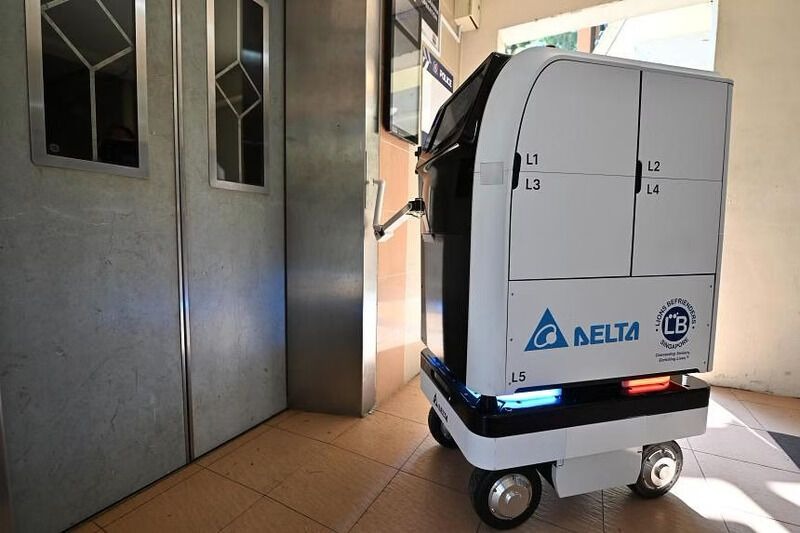In the crowded streets of Queenstown, Singapore, a new "inhabitant" is making a difference: it is Aiden, an autonomous mobile robot, specialized in assisting the elderly. With his ability to deliver meals, manage laundry and deliver medications, Aiden is a jack of all trades who can free up healthcare workers for more urgent interventions.
Technological innovation has always had a significant impact on our society, but it has rarely touched a chord as delicate and fundamental as elder care. In Singapore, the small island state known for its cutting-edge technology and pursuit of efficiency, this new autonomous robotic factotum promises to radically transform the sector.
Aiden, gentlemen, and I come from afar
AIDEN, acronym of "Aautonomous Intelligence for Ddelivery and ENgagement”, is currently being trialled at Block 151 Mei Ling Street, where it will remain until February 2024. Its mission is clear and ambitious: to navigate the small lifts and narrow corridors of Queenstown apartment buildings, to deliver two daily meals to elderly between 67 and 82 years. But his duties don't stop there: Aiden is also able to assist with other essentials, such as laundry or medicines, providing invaluable support to the community's older residents.
Can a robotic all-rounder like this replace assistance personnel? Anyone who thinks so thinks superficially. Far from it. In an industry often under pressure from lack of resources and staff, the introduction of an autonomous robot that takes care of daily tasks allows healthcare workers to dedicate more time and attention to crucial aspects of care. Which? Aside from emergency interventions where the dexterity of a robot is far, far behind? Well, emotional support and companionship are essential elements for the well-being of the elderly. And humans do it even better, until proven otherwise. No?
This innovative approach can introduce a new model of care where technology and humanity come together to create a more sustainable and efficient environment.

All-rounder for seniors today, for everyone tomorrow
Aiden is equipped with a small but functional arm, capable of pressing the elevator buttons to call it and select the right floor, a detail that demonstrates how even the most practical challenges have been carefully considered in its design. His experimentation is a prime example of how emerging technologies can be meaningfully applied in real life. If his deployment is successful, we may soon see a new era of senior care. In an era where the world's population is rapidly aging, innovative solutions like Aiden are more necessary than ever.
According to the World Health Organization, the population over 60 will triple by 2050, reaching almost 2 billion. This exponential increase poses unprecedented challenges in terms of healthcare and support. Aiden and similar technologies could be the key to addressing these challenges, offering reliable and constant support that goes beyond human capabilities.
The most intriguing aspect of this innovation, however, is not its practical applicability. It is the possibility of extending the use of such technologies to other sectors. If a robot can successfully navigate through the complex interiors of an apartment building to assist the elderly, what other applications might emerge in densely populated urban environments? We could see all-purpose robots similar to Aiden employed in hospitals, schools or even used for home deliveries in complex urban environments.


